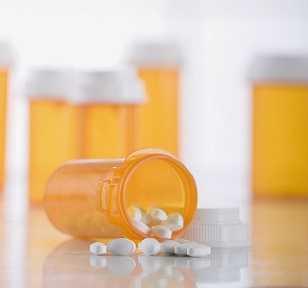Cholesterol-lowering Medication

Your doctor may prescribe medicine in addition to lifestyle changes to control your cholesterol levels.
If you have high low-density lipoprotein (LDL) cholesterol, you can take steps to lower your risk for heart disease and stroke. Your doctor may prescribe medicine in addition to lifestyle changes to control your LDL cholesterol level.
Your health care team will evaluate your cholesterol levels and other risk factors to determine your overall risk for heart disease and stroke and decide whether you need treatment to lower your cholesterol. Your doctor may prescribe medication if:
- You previously had a heart attack or stroke.
- Your LDL cholesterol level is 190 mg/dL or higher.
- You are 40–75 years old with diabetes and LDL cholesterol of 70 mg/dL or higher.
- You are 40–75 years old with a high risk for developing heart disease or stroke and LDL cholesterol of 70 mg/dL or higher.
Discuss with your health care team about your overall cardiovascular health and how you may be able to reduce your cardiovascular disease risk.
Cholesterol-lowering Medication
Several types of medications help lower LDL cholesterol. The chart below describes each type and how it works. The U.S. Food and Drug Administration (FDA) also provides a quick reference list of medicines to treat high LDL cholesterol.
| Type of Medicine | How it Works |
|---|---|
| Statins |
Statin drugs lower LDL cholesterol by slowing down the liver’s production of cholesterol. They also increase the liver’s ability to remove LDL cholesterol that is already in the blood. The U.S. Food and Drug Administration (FDA) offers advice on the risks related to taking statins: |
| Bile acid sequestrants | Bile acid sequestrants help remove cholesterol from the blood stream by removing bile acids. The body needs bile acids and makes them by breaking down LDL cholesterol. |
| Niacin, or nicotinic acid | Niacin is a B vitamin that can improve all lipoprotein levels. Nicotinic acid raises high-density lipoprotein (HDL) cholesterol levels while lowering total cholesterol, LDL cholesterol, and triglyceride levels. |
| Fibrates | Fibrates mainly lower triglycerides and, to a lesser extent, increase HDL levels. |
All drugs may have side effects, so talk with your health care team, including your pharmacist, on a regular basis. Once your cholesterol levels have improved, your doctor will monitor them to ensure they stay in a healthy range.
Creating a Treatment Plan
Your treatment plan for high LDL cholesterol will depend on your current LDL level and your risk for heart disease and stroke. Your risk for heart disease and stroke depends on other risk factors, including high blood pressure and high blood pressure treatment, smoking status, age, HDL cholesterol level, total cholesterol level, diabetes, and family history.
- Page last reviewed: March 16, 2015
- Page last updated: March 16, 2015
- Content source:



 ShareCompartir
ShareCompartir